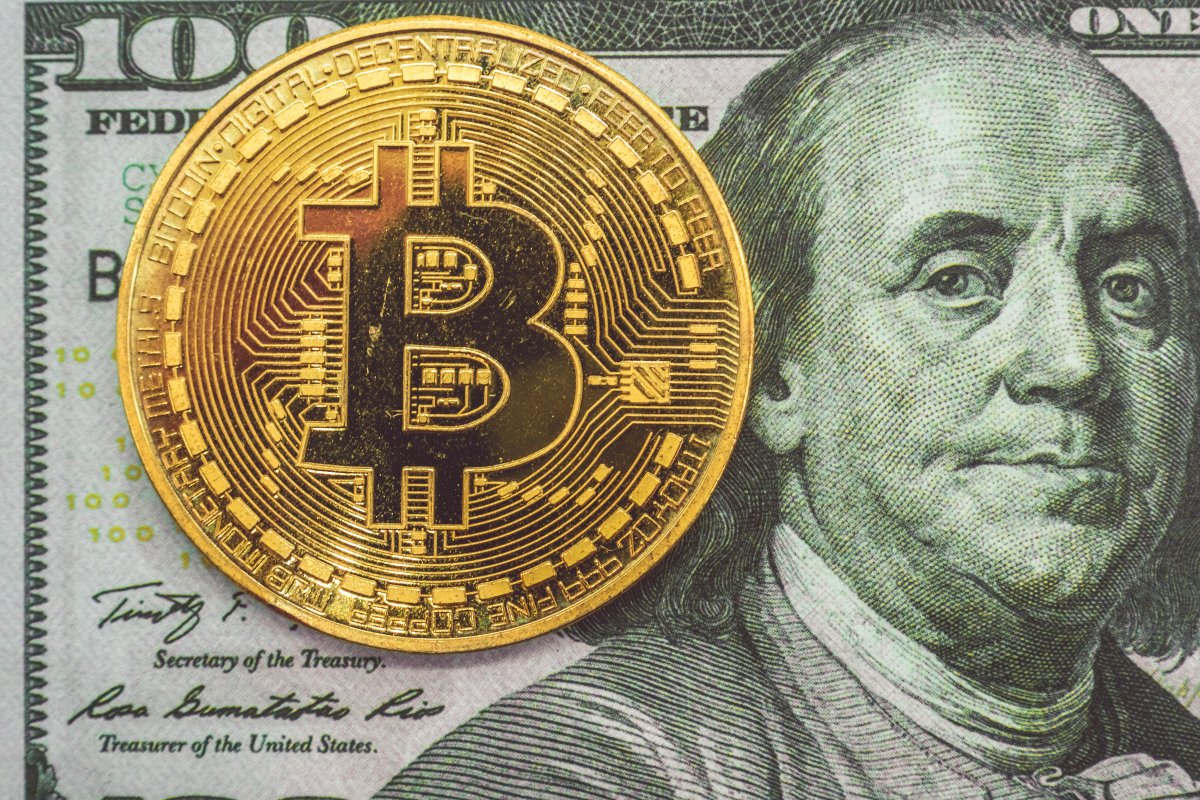
The cryptocurrency community hardly noticed when Brian Brooks left his position as the Chief Legal Officer at Coinbase, the largest US-based cryptocurrency exchange. On April first he began work as the COO of the Office of the Comptroller of the Currency (OCC), the US regulatory agency that oversees national banks. Santiment, a data analytics company, gives a score of 6 to mentions of Brooks’ name in social media around the time of his move to the OCC. By contrast, mentions of the Bitcoin halving, which occurred around the same time, earned a score of 4,220. Discussions of negative oil prices, which the crypto community gleefully celebrated after years of criticism regarding the volatility of crypto assets, scored 4,800.
Just two months later, the OCC promoted Brooks to Acting Comptroller of the Currency, the lead position at the regulatory institution. That change went almost entirely unnoticed in the crypto community. But perhaps the community should have been paying greater attention. It is surely no coincidence that less than two months after Brooks took charge, the OCC recognised the authority of national banks in the US to provide custody services for cryptocurrency assets.
Banks have historically served as custodians of their customers’ assets, either by providing old-fashioned safety-deposit boxes for valuables, or by providing secure checking and savings accounts for depositors funds. The OCC will now permit national banks to extend their purview as custodians and provide storage mechanisms for the private keys that control the transfer and spending of cryptocurrency assets. Additionally, banks will have the authority to manage cryptocurrency assets on behalf of customers.
Many within the crypto community have expressed their excitement at this green light from the OCC. Cryptocurrency exchange Binance US tweeted, “This is huge news for #crypto adoption! Thank you @BrianBrooksOCC for making sure Americans aren't left behind.” As reported by Forbes, Gemini, a regulated cryptocurrency exchange backed by the famous Winklevoss twins, and Anchorage, a digital asset custodian, “agree this can be good for the industry.” Coinbase CEO Brian Armstrong simply tweeted “Progress,” along with a link to the press release from the OCC.
Coin Center, a Washington DC-based non-profit advocacy centre, works on the regulatory challenges facing cryptocurrencies. The organisation claims a diverse group of supporters including the giant American accounting firm Deloitte, the Ethereum Foundation, the venture capital fund Andreesen Horowitz, and the cryptocurrency exchange Kraken. Coin Center had been advocating for regulation to allow banks to handle cryptocurrency for the past five years, and in a 2016 letter stated, “Approving digital currency companies to operate under a national bank charter will spur innovation, enhance American competitiveness within the global financial technology sector, improve protections for consumers of digital currency services, and promote the development of tools and platforms that can bolster financial inclusion.”
Answering the question of who will benefit from this change, Coin Center writes:
“Cryptocurrencies are, of course, designed to be peer-to-peer payment networks that allow us to, as the saying goes, “be your own bank.” The ability to hold and transact crypto directly is core to the privacy and autonomy benefits of the tech; it’s why we call cryptocurrencies digital cash: it can be passed person to person without an intermediary who can surveil or censor transactions.”
“As with cash, however, it would be foolish to imagine a future where every person holds their entire life-savings directly in a wallet they personally control. There will always be a need for safekeeping of large amounts and there will always be a need for large, liquid marketplaces to exchange digital cash for other assets.”
Clearly, for those who desire the opportunity to invest in cryptocurrencies but lack the interest or ability to take personal responsibility for the day-to-day security of those assets, trusting a big bank for custody provides an ideal solution. And certainly the more people feel comfortable investing in and using cryptocurrencies, the easier the path to mass adoption.
However, as Coin Center notes, cryptocurrency’s original promise involved eliminating the financial intermediaries and allowing direct, peer-to-peer transmission of value without the need for a central, trusted authority. In contrast, the OCC states that “as the financial markets become increasingly technological, there will likely be increasing need for banks and other service providers to leverage new technology and innovative ways to provide traditional services on behalf of customers. By providing such services, banks can continue to fulfil the financial intermediation function they have historically played in providing payment, loan and deposit services” (italics mine).
Harvard Professor Kenneth S. Rogoff explores the relationship between cryptocurrency and the traditional financial establishment in his 2017 book, “The Curse of Cash.” While Rogoff’s main argument focuses on the need to drastically reduce the amount of physical cash in circulation, particularly large denomination notes, he does not believe cryptocurrency will ever replace state-sponsored (fiat) currency. As his thoughts have considerable relevance for the current news from the OCC, it is worth quoting Rogoff in some detail:
“With all due respect to promising security advances offered by public ledger technology and the ingenious algorithms embodied in some of the new “currencies,” the view that Bitcoin — or any other cryptocurrency — is going to replace the dollar anytime soon is quite naive. As currency innovators have learned over the millennia, it is hard to stay on top of the government indefinitely in a game where the latter can keep adjusting the rules until it wins. If the private sector comes up with a much better way of doing things, the government will eventually adapt and regulate as necessary to eventually win out…”
“Governments around the world have already begun regulating cryptocurrencies more aggressively. In the United States Bitcoin wallets must now comply with anti-money-laundering rules, and the Internal Revenue Service has begun to issue rulings on how Bitcoin earnings should be taxed….Where governments have the greatest leverage is in regulating how financial institutions interact with cryptocurrencies…By controlling the gateway into the financial system and the legal economy, governments have tremendous leverage to undermine the value and liquidity of any alternative currency scheme that attempts to avoid regulation permanently” (italics mine).
Given this framework, it seems reasonable to ask whether the OCC’s actions will help drive mass adoption of cryptocurrency or serve to undermine the original purpose of the decentralised technology and co-opt its power by bringing it under the regulatory control of the government. Tellingly, the OCC’s interpretive letter states, “During the acceptance process, the custodian should also assess whether the contemplated duties are within its capabilities and are consistent with all applicable law. Understanding the risks of cryptocurrency, the due diligence process should include a review for compliance with anti-money laundering rules.”
It is therefore not at all surprising to find the largest cryptocurrency exchanges celebrating the current events. CoinMarketCap ranks the top exchanges based on traffic, liquidity, and trading volumes of spot markets. Regarding the exchanges mentioned previously, which publicly applauded the news from the OCC, Binance, the parent company of Binance US holds the number one spot on the CoinMarketCap list, with its American subsidiary ranking 27. Gemini ranks 67th, with 24-hour trading volumes of $26 million. Kraken (supporter of the Coin Center advocacy non-profit) holds the number four spot, just behind Coinbase at number three.
According to Forbes, Nathan McCauley, CEO of Anchorage, which provides digital asset custodian services for institutions said, “The OCC letter is a positive development for the entire crypto industry. A lack of regulatory clarity has been a big roadblock to more institutional activity in crypto, and major pronouncements like this will help move the needle.” However, McCauley cautioned, “Digital asset custody presents more than regulatory challenges. It is highly technical, often bespoke work with no easy corollary in traditional finance.”
Given both the technical and regulatory challenges to providing custody service, the existing large institutions can leverage economies of scale to secure the necessary resources. Therefore, it is the largest exchanges that stand to benefit the most both from increased ease of adoption for cryptocurrency and from the barriers to entry provided by complex and costly regulatory compliance. As the large exchanges grow ever larger, the cryptocurrency ecosystem could increasingly resemble the centralised world of traditional finance, which the initial visionaries had sought to leave behind. While the crypto industry is focused on events like the Bitcoin halving and oil prices, it is possible that largely unnoticed actions such as Brooks move to the OCC will make a more lasting impact on the industry’s future direction.
There is no doubt that day by day cryptocurrency is gaining greater visibility, greater legitimacy, and greater adoption. But it is too soon to say whether the technology will bring about the decentralisation revolution envisioned by the currency’s original advocates, or whether it will become just another means of doing business within the existing financial infrastructure.
Sources:
https://www.occ.gov/news-issuances/news-releases/2020/nr-occ-2020-33.html
https://app.santiment.net/labs/trends/explore
https://www.occ.gov/news-issuances/news-releases/2020/nr-occ-2020-69.htm....
https://www.occ.gov/news-issuances/news-releases/2020/nr-occ-2020-98.html
https://www.coindesk.com/new-york-among-13-states-excluded-as-binance-us...
https://twitter.com/BinanceUS/status/1286022382235209728
https://www.forbes.com/sites/haileylennon/2020/07/22/bitcoin-meets-banki...
https://twitter.com/brian_armstrong/status/1286130848782094337
https://www.coincenter.org/comments-to-the-office-of-the-comptroller-of-...
https://press.princeton.edu/books/hardcover/9780691172132/the-curse-of-cash
https://www.occ.gov/topics/charters-and-licensing/interpretations-and-ac...





